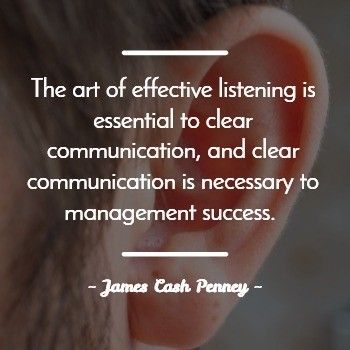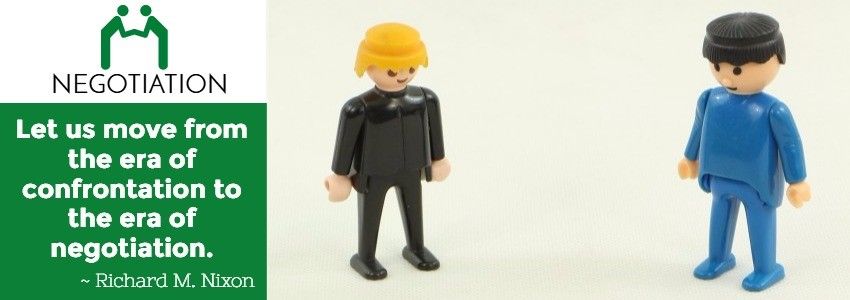10 Steps to Achieving Win-Wins with Effective Negotiation Skills
Every person has a difference of opinion, which leads to conflicts and disagreements. Without negotiations, these conflicts may result in arguments. The aim of negotiation is to reach the agreements without affecting the future communications and creating a win-win scenario for all the negotiators.
Negotiation skills are often the desired ability for most of the job offers. However, to negotiate one must possess several skills such as excellent interpersonal skills, communication skills, and soft skills.
A successful negotiation requires the negotiators to come together and finalize a solution that is efficient and acceptable by all the negotiators. Following a structured approach to any negotiation may lead to the desirable outcome.
Article Index:
- Problem Analysis
- Preparation
- Active Listening
- Emotional Control
- Verbal Communication
- Collaboration & Teamwork
- Problem Solving
- Decision Making
- Interpersonal Skills
- Ethics & Reliability
- Conclusion
Problem Analysis
The art of negotiation requires one to possess problem analysis techniques to understand the problem and identify the priorities of all the parties. The problem analysis should determine the issues, understand the interests of various parties and develop alternatives. Techniques like cause and effect, and BPR 20 questions can help in analyzing the problem.
Preparation
Before entering into a negotiation, a discussion should take place to decide the time and venue for the negotiation. A good negotiator should always be ready with as much information as possible. The collected information will help to plan a strategy properly. For example, instead of focussing just on the price, the strategy could focus on other aspects of the deal like customer service, delivery time and much more. Some of the aspects that a strategy could incorporate are:
- Consider long-term and short-term collaborations with the negotiators.
- Read and understand the contract thoroughly.
- Set reachable targets.
- Collect the facts that support the suggested solution.
Active Listening
 A negotiator should possess excellent listening skills. Active listening not only involves listening to verbal/oral presentation skills but also includes reading the body language. A good negotiator spends most of the time to listen to the other party to find out the key areas of compromise. An excellent negotiator with an active listening skill must follow the following:
A negotiator should possess excellent listening skills. Active listening not only involves listening to verbal/oral presentation skills but also includes reading the body language. A good negotiator spends most of the time to listen to the other party to find out the key areas of compromise. An excellent negotiator with an active listening skill must follow the following:
- Be motivated to listen to the other party
- Never interrupt when the other party speaks.
- Pay attention to non-verbal cues.
- Allow the other part to present their story first.
- React to the message and not the person.
- Stay calm.
- Avoid distraction.
Emotion control
It is easy to negotiation for the negotiator with high emotional intelligence, because the negotiator can control his emotions and can avoid the problematic situations during the process. For example, a person frustrated with his job, asking for the payment raise is more likely to involve emotions while negotiation and more likely to end up agreeing with the management than an emotionally controlled person. An emotionally intelligent person is considered not only good in the art of negotiation but also performs well in the organization with effective interpersonal and leadership skills. The negotiator with a low emotional intelligence (EQ) accepts the unfavorable results and compromises with the management too early.
Verbal communication
Verbal communication typically plays a vital role during negotiation. The negotiators must have excellent verbal communication skills so that they can present the desired outcomes with reasoning effectively. The employees with poor soft skills show an inability to state their case clearly and fail to understand the case of the other side of the table. In such situations, misunderstanding occurs, and the bargainer who has better verbal communication wins.
Collaboration and teamwork
Negotiation often takes the ability to work in a team into account. The art of negotiation includes the techniques of the teams that they implement while working in collaboration. For example, a negotiator who is good at collaboration and teamwork is more likely to help the management to reach an agreeable solution. The collaborative skills such as leadership, persuasive, and influencing skills help the person to negotiate effectively for both the sides.
Problem solving
The problem-solving skills not only make the negotiators understand the negotiation problems but also assist them to provide the solutions that benefit both sides of the table. Every time the employees ask for the payment raise, the management raises some problems. The problem solving plays a key role in the art of negotiation, which involves the breakdown of communication and the focus on the problem. The problem solving does not rely on the ultimate goal for favorable negotiation.
Decision-Making Ability
To achieve continuous improvement in Negotiation Skills, Decision Making is one of the top most quality a negotiator needs. Every leader has to make decisions on a daily basis in a wider process of problem-solving. A skilled negotiator, therefore, needs to be an effective decision maker choosing between the possible solutions to a problem during Negotiation. This skill is something a leader needs to have to make decisions creating win-win situations implemented on the personal as well as organizational levels.
Interpersonal Skills
Effective negotiators possess impressive interpersonal skills such as the art of persuasion through speech and writing. Persuasive language helps professional maintain healthy business communications throughout the work process. Powerful negotiation skills add up to the psychology of persuasion business leaders needs to discuss and reach an agreement in a highly professional manner. Business professionals with strong interpersonal skills can persuade business peers without manipulating them, this in turn creates and helps to maintain a positive work atmosphere. A perfect blend of Verbal Communication, Nonverbal Communication, and Listening techniques makes a business professional influence businesses in a more effective manner.
Ethics and Reliability
People like to negotiate with professionals only if they are trustworthy. A successful negotiator is a professional that owns a reputation and trust in the business market. Therefore it is necessary for the other side of the table to hold faith during the negotiation process. Negotiators that maintain ethical standards and reliability are better at influencing business prospects as they ensure to keep promises and agreements made during negotiation. Also, it is important to speak the other one’s language, that means, a skilled negotiator researches about the history, background, and perspective of the other side showing that they are committed to the negotiation, and this ultimately adds to a step towards trust building. Having this psychology of persuasion signals the negotiator’s readiness to follow through the negotiated settlement.
Conclusion
Strong negotiators are the people that are masters in written, verbal and non-verbal communication. These are people that adopt a conscious and assertive approach to their communication. Good negotiators hold qualities of flexibility, honesty, creativity and are win-win oriented. Using transparent business approach and persuasive language, they master the art of negotiation and business communication.














25,350 Comments